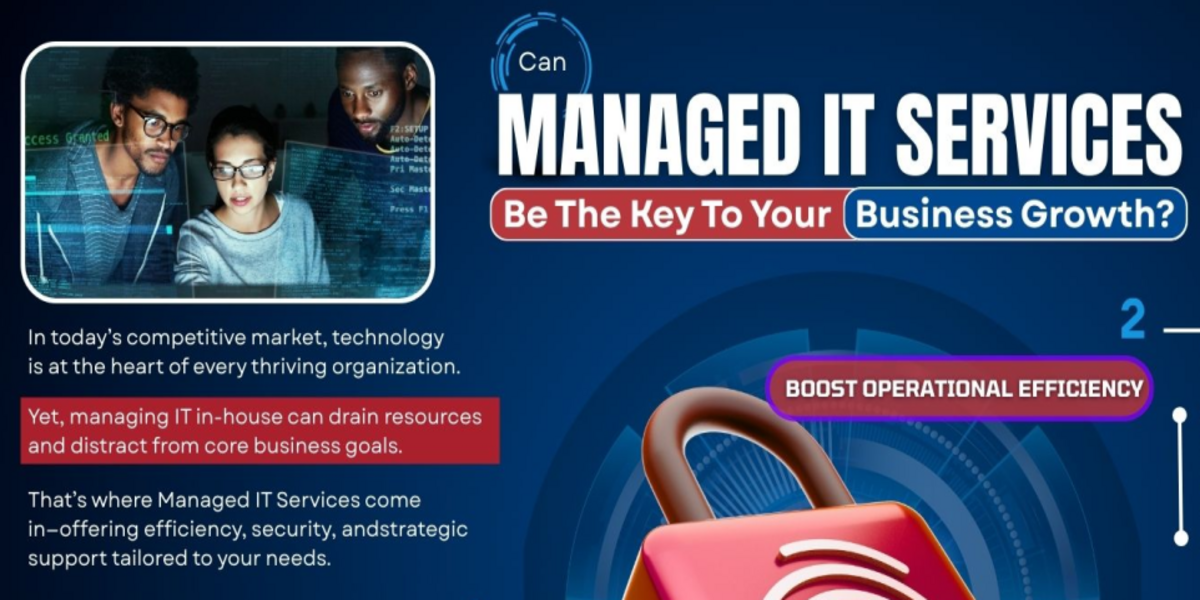The cloud revolution has transformed how businesses operate, offering unparalleled scalability, flexibility, and cost-effectiveness. However, migrating to the cloud also introduces new security concerns. Cloud security for businesses becomes paramount to ensure the confidentiality, integrity, and availability of your valuable data.
This comprehensive guide explores best practices for securing your cloud environment and empowers you to navigate the ever-evolving landscape of cloud security threats with the help of a Managed IT Services Provider like us.
Understanding the Shared Responsibility Model of Cloud Security
The responsibility for cloud security is a shared one. Cloud providers are responsible for the protection of the underlying infrastructure, including physical security, network security, and virtualization.
Recommended Read: Checklist for a Secure and Effective Network Infrastructure
They employ robust measures to safeguard their data centers, implement access controls for their personnel, and utilize state-of-the-art security technologies to protect their infrastructure.
However, the responsibility for securing data and applications within the cloud environment falls on the business itself. This includes securing data at rest and in transit, implementing access controls, and maintaining a vigilant posture against potential threats. This is where Managed IT Services Providers can help.
Security Features Comparison of Major Cloud Providers
There are significant differences in the security features offered by various cloud providers. Leading providers like Amazon Web Services (AWS), Microsoft Azure, and Google Cloud Platform (GCP) all offer robust security solutions.
However, the specific features and functionalities can vary and must be taken into account when we discusscloud security for businesses.
- AWS: Known for its extensive range of security services, AWS offers features like Identity and Access Management (IAM) for granular access control, Security Token Service (STS) for temporary credentials, and Key Management Service (KMS) for secure key management.
- Microsoft Azure: Azure offers Azure Active Directory for identity and access management, Azure Security Center for comprehensive threat detection and monitoring, and Azure Key Vault for managing encryption keys.
- Google Cloud Platform: GCP provides Cloud Identity and Access Management (IAM) for user authentication and authorization, Cloud Key Management Service (KMS) for encryption key management, and Cloud Security Command Center for threat detection and incident response.
Microsys, as a Managed IT Services Provider (MSP), considers cloud security for businesses a priority. We can help you navigate these differences and select the cloud provider that best aligns with your security needs and compliance requirements.
Recommended Read: 5 Essential Cloud Solutions for Your Small & Medium-Sized Business
Our team can provide in-depth comparisons of these security features and guide you through the selection process, ensuring you choose a cloud environment that offers the right balance of security, functionality, and cost.
Compliance Requirements and Cloud Security For Businesses
Many businesses operate within industries subject to strict data security regulations. These regulations, such as the Health Insurance Portability and Accountability Act (HIPAA) for healthcare providers, the Payment Card Industry Data Security Standard (PCI DSS) for credit card processors, and the General Data Protection Regulation (GDPR) for businesses operating in the European Union, dictate specific data protection and access control measures.

As a leading Managed IT Services Provider, we can assist you in understanding your compliance obligations and ensuring your cloud environment adheres to all relevant regulations. We can help you map your data security controls to the specific requirements outlined in these laws, ensuring your cloud environment is compliant and protects sensitive information according to industry best practices.m
Building Robust Cloud Security For Businesses
Here are key strategies to fortify cloud security for businesses:
Data Encryption
Encrypting your data at rest and in transit safeguards sensitive information, even if it falls into the wrong hands. A Managed IT Services Provider can help you implement robust encryption solutions based on industry standards, such as Advanced Encryption Standard (AES) or RSA encryption. We can also advise on key management practices to ensure the security and accessibility of your encryption keys.
Access Control
When it comes to cloud security for businesses,Implement granular access controls to restrict access to sensitive data based on the principle of least privilege. This means granting users only the minimum level of access required to perform their jobs. Microsys, an experienced Managed IT Services Provider, can advise on best practices for user authentication and authorization within your cloud environment. We can help you configure user roles and permissions, implement multi-factor authentication (MFA) for added security, and establish strong password policies.

Threat Detection and Monitoring
Continuously monitor your cloud environment for suspicious activity and potential security threats. Our team can implement advanced threat detection and monitoring tools to proactively identify and mitigate security risks. These tools can monitor for unusual login attempts, unauthorized access to data, and suspicious file activity, alerting you to potential threats before they can cause significant damage.
Incident Response Planning
Develop a comprehensive incident response plan to effectively respond to security breaches and minimize damage. A Managed IT Services Provider can assist you in crafting a robust response plan, ensuring swift action and data recovery in the event of an attack. Our plan will outline clear roles and responsibilities for your team, define communication protocols, and establish procedures for data restoration and containment of the breach.
Recommended Read: A Guide to Prevent Data Breaches
Regular Security Audits
Conduct regular security audits to identify vulnerabilities and ensure your cloud security posture remains strong. Microsys offers security assessment services to pinpoint weaknesses in your cloud environment. We can perform penetration testing tosimulate real-world attacks and identify exploitable vulnerabilities. Our security assessments will provide a comprehensive report outlining identified risks and recommendations for remediation, ensuring your cloud environment remains secure and compliant.
Microsys: The Trusted Partner for Cloud Security For Businesses
Migrating to the cloud unlocks a world of possibilities, but it also necessitates a robust cloud security strategy. Microsys, with its expertise in Managed IT Services and cloud security for businesses, can be your trusted advisor on your cloud security journey.
Our team of certified professionals can help you with the following.
Develop A Comprehensive Cloud Security Strategy
We will assess your security needs, compliance requirements, and cloud environment to create a customized plan that safeguards your data in the cloud. This plan will consider factors such as your industry regulations, data sensitivity, and budget constraints.
Implement Best Practices And Security Solutions
As a renowned Managed IT Services Provider in Stouffville,we can assist you in implementing data encryption, access controls, threat detection, and other essential security measures. Our team will leverage their expertise to configure your cloud environment according to industry best practices and ensure optimal security without hindering your business operations.
Monitor And Manage Your Cloud Security Posture
Our team will continuously monitor your cloud environment for potential threats and ensure your security measures remain effective. We will provide ongoing security management, including vulnerability assessments, patch management, and security awareness training for your staff.
Respond To Security Incidents
In the event of a breach, Microsys can guide you through the incident response process and help you recover your data quickly and efficiently. Our team will activate your pre-defined incident response plan, manage communication with stakeholders, and assist in data restoration efforts.
Recommended Read: Best Practices for Data Backup and Recovery

Maintain Business Continuity
A critical aspect of cloud security for businessesis ensuring business continuity in the event of an attack or outage. Microsys can help you implement disaster recovery solutions like data backup and replication to minimize downtime and ensure your business can resume operations quickly.
Contact Microsys today to discuss your cloud security needs and discover how our comprehensive cyber security services can ensure business continuity and safeguard your valuable data in the cloud.
As a Managed IT Services Provider,we can help you navigate the complexities of cloud security, ensuring your cloud environment remains secure, compliant, and optimized for success.



